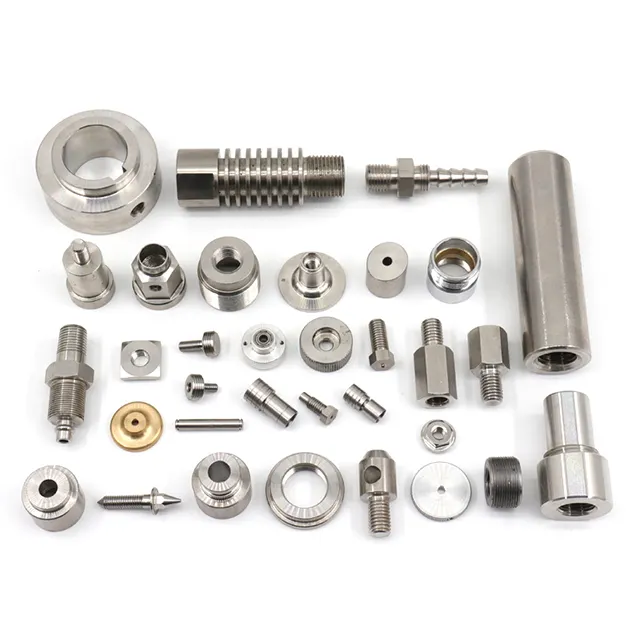Computer Numerical Control (CNC) machining has revolutionized the manufacturing industry, and its application in the production of fasteners is no exception. Fasteners, the unsung heroes of the construction and manufacturing world, require precision and consistency, which CNC machining readily provides. This article delves into the CNC applications for various types of fasteners.
Types of fasteners that can be made using CNC machining
| Type of Fastener | Description | Common CNC-Made Variants |
|---|---|---|
| Bolts | Threaded fasteners requiring a nut. | Hex bolts, carriage bolts, eye bolts |
| Screws | Threaded fasteners for pre-drilled holes or self-threading. | Machine screws, set screws |
| Nuts | Internally threaded fasteners for bolts. | Hex nuts, flange nuts, cap nuts |
| Washers | Distribute load or prevent leakage. | Flat washers, spring washers |
| Rivets | Permanent mechanical fasteners. | Blind rivets (pop rivets) |
| Pins | Unthreaded fasteners for alignment or holding. | Dowel pins, taper pins |
| Anchors | Secure objects to concrete/masonry. | Concrete screws, wedge anchors |
| Studs | Threaded rods for securing from two sides. | Fully threaded studs, double-ended studs |
| Retaining Rings | Hold components in place. | E-clips, external/internal retaining rings |
| Threaded Inserts | Provide threaded hole in soft/brittle materials. | Helical inserts, key-locking inserts |
CNC machining offers precision and consistency, making it ideal for producing these fasteners, especially when high accuracy and tight tolerances are required.

FAQs: CNC Application for Types of Fasteners
1. Why is CNC machining preferred for fastener production? CNC machining offers unparalleled precision, consistency, and adaptability, ensuring that fasteners meet strict quality and performance standards.
2. Can CNC machines produce custom fastener designs? Yes, CNC machines can be programmed to produce bespoke fastener designs tailored to specific requirements or unique applications.
3. How does CNC machining ensure the accuracy of threads on bolts and screws? CNC machines follow precise digital blueprints, ensuring that threads are cut or formed to exact specifications, ensuring a perfect fit and function.
4. Are there any fasteners that cannot be produced using CNC machining? While CNC machining is versatile, certain fasteners with complex geometries or made from specific materials might require alternative manufacturing methods. However, most standard and many custom fasteners can be CNC machined.
5. How does CNC machining contribute to the longevity of fasteners? By ensuring precise dimensions and consistent quality, CNC-machined fasteners fit better and are less prone to wear, leading to a longer lifespan.
6. Is CNC machining cost-effective for fastener production? While the initial setup for CNC machining can be costly, the efficiency, speed, and reduced waste make it cost-effective for large-scale production. For custom or small-batch production, the benefits of precision and customization often outweigh the costs.
7. Can CNC machines handle different materials for fastener production? Yes, CNC machines can work with a wide range of materials, including various metals, alloys, and certain plastics, making them versatile for fastener production.
8. How do CNC-machined washers ensure better load distribution? CNC machines produce washers with exact dimensions and smooth surfaces, ensuring even distribution of pressure when a bolt or screw is tightened.
9. Are CNC-machined rivets stronger than traditionally made rivets? CNC-machined rivets are consistent in quality and dimensions, which can lead to better performance. However, the strength also depends on the material used and the specific application.
10. How does CNC machining support sustainable manufacturing in the fastener industry? CNC machining is efficient and produces minimal waste. By optimizing material usage and reducing the need for post-production corrections, CNC contributes to more sustainable manufacturing practices.

